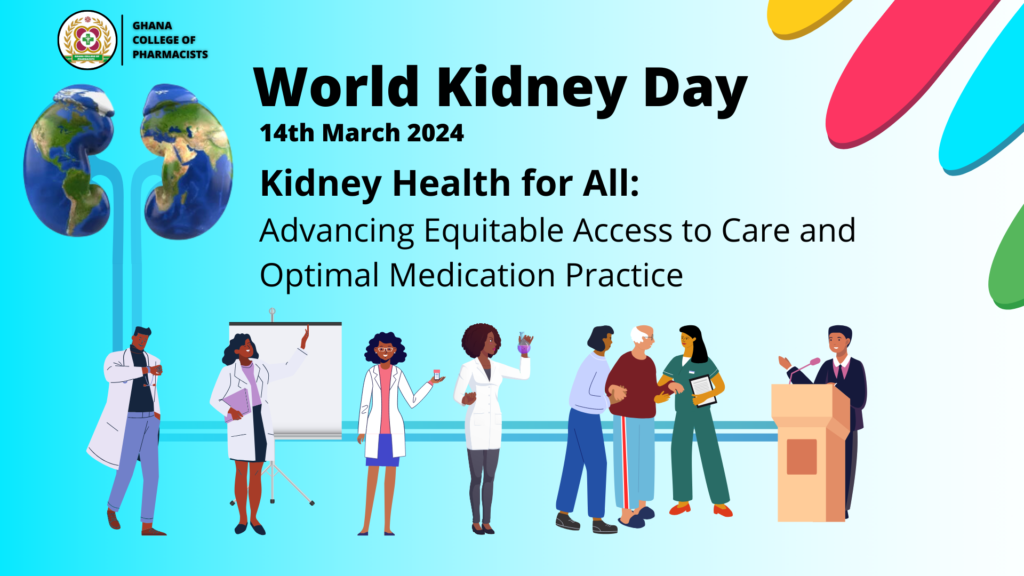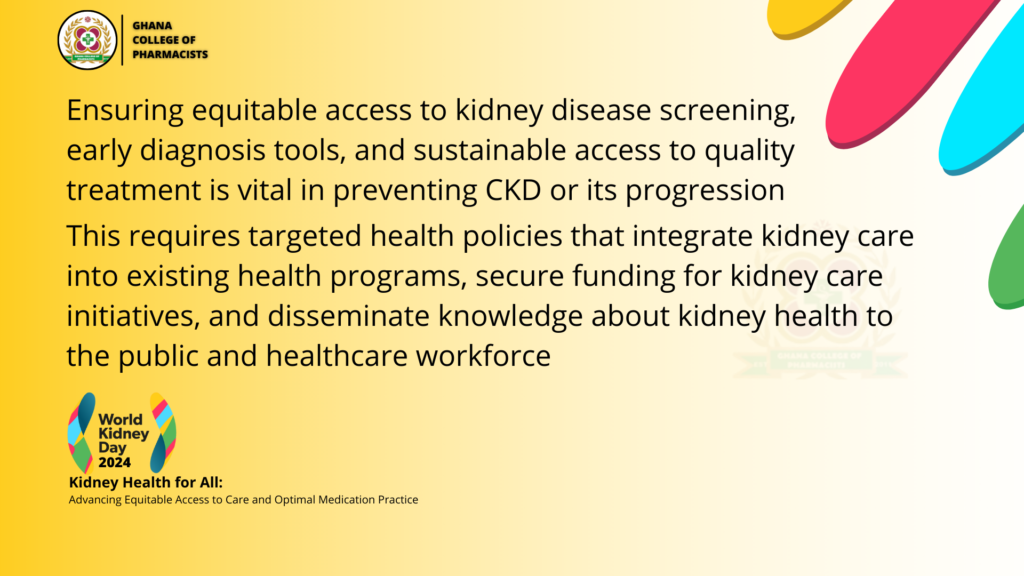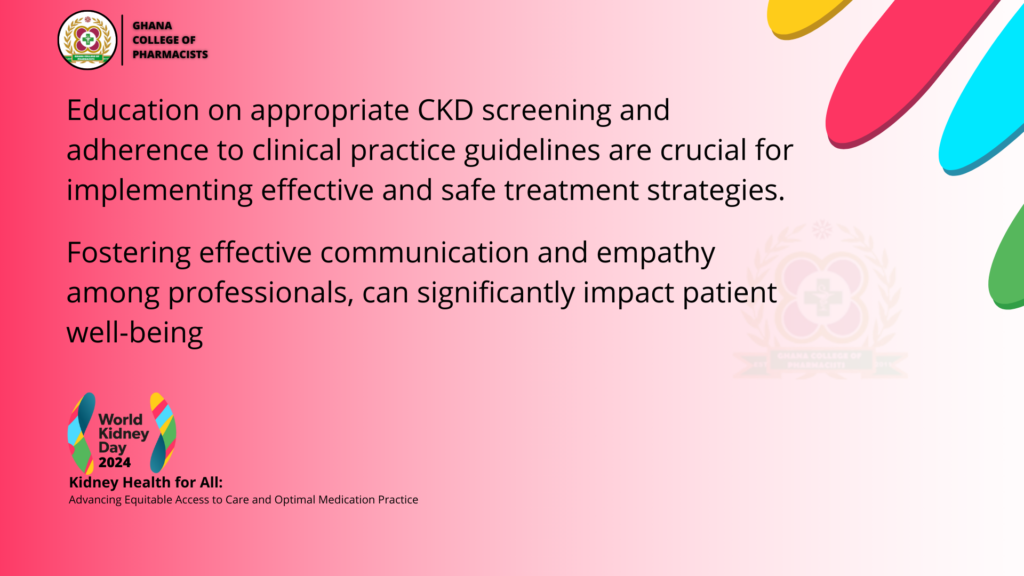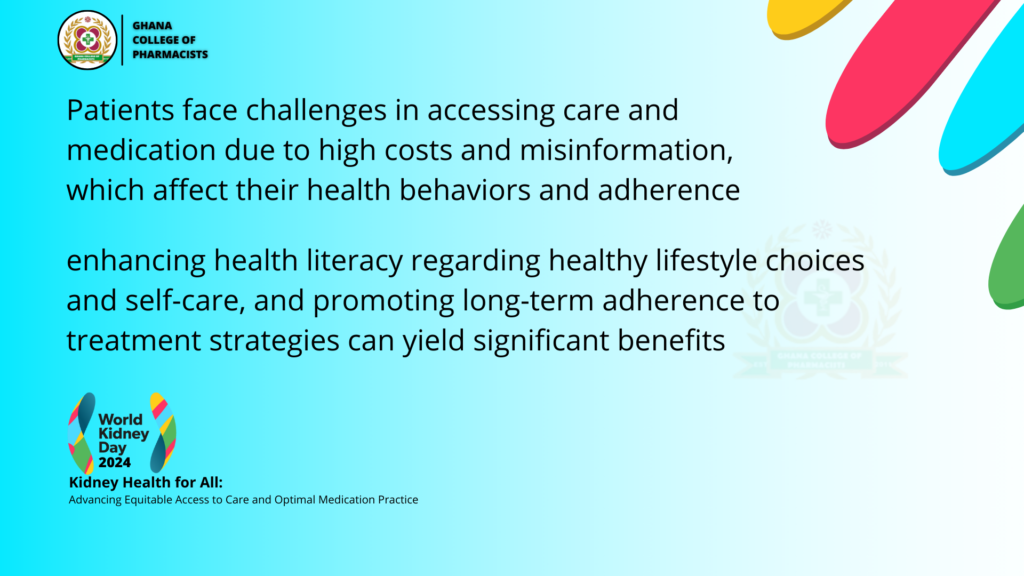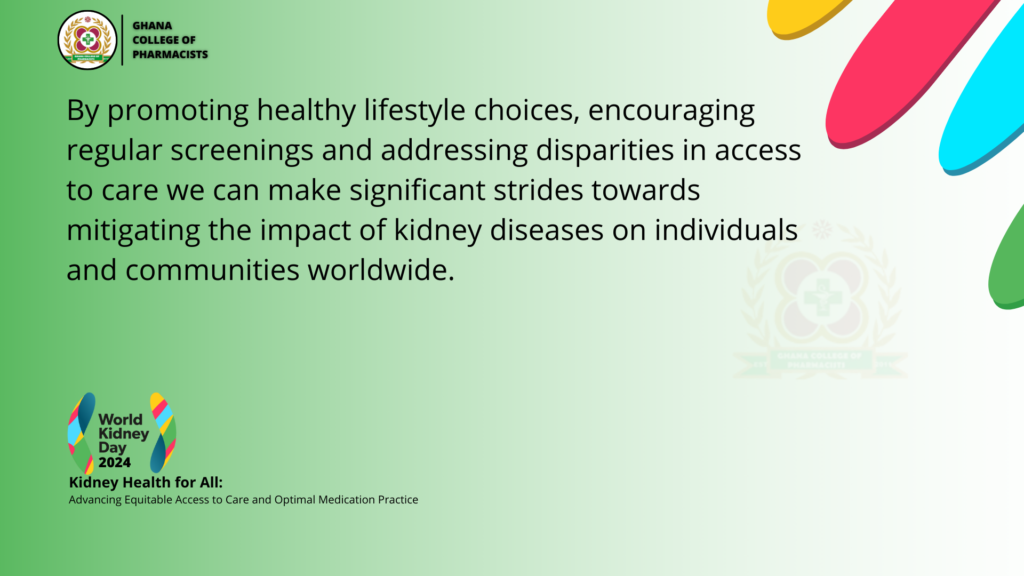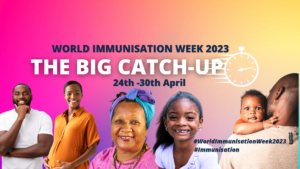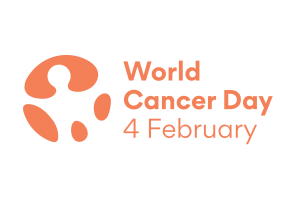Established in 2006, World Kidney Day stands as a global beacon of awareness, shining light on the vital importance of kidney health and the pervasive impact of kidney diseases worldwide. With each passing year, this annual campaign on the second Thursday of March serves as a rallying cry for individuals, communities, and organisations to unite in the fight against kidney-related ailments.
Various kidney diseases, ranging from chronic kidney disease to kidney stones and urinary tract infections, affect numerous individuals globally, impacting their well-being significantly. Apart from the physical health risks they pose, these conditions also impose substantial economic burdens and decrease overall quality of life.
Chronic kidney disease (CKD) impacts approximately 700 million people worldwide, leading to 3.1 million deaths annually and ranking as the seventh leading cause of death globally. In Ghana, The prevalence of CKD 13.3%. Notably, low- and middle-income countries shoulder a disproportionate burden of CKD and kidney failure. Various factors, including socioeconomic status, cultural differences, environmental conditions, and political influences, contribute to this inequality in disease prevalence across different regions. Particularly in areas with limited resources, access to affordable, high-quality kidney care remains a significant challenge, resulting in the premature deaths of numerous individuals.
To achieve optimal kidney care, it is also imperative to address barriers at various levels while recognising the contextual differences across different regions worldwide. These barriers include challenges such as gaps in early diagnosis, the absence of universal healthcare or insurance coverage, limited awareness among healthcare professionals, and difficulties related to medication cost and accessibility. A comprehensive approach is necessary to safeguard kidneys, hearts, and lives:
- Health Policies: Targeted health policies are needed for both primary and secondary prevention of CKD. These policies should integrate kidney care into existing health programs, secure funding for kidney care initiatives, and disseminate knowledge about kidney health to the public and healthcare workforce. Ensuring equitable access to kidney disease screening, early diagnosis tools, and sustainable access to quality treatment is vital in preventing CKD or its progression.
- Healthcare Delivery: Suboptimal kidney care often stems from a lack of policy focus, insufficient patient and provider education, limited resources for high-quality care, and challenges in accessing affordable medication. Successful implementation of strategies requires adopting comprehensive, patient-centred, and locally oriented approaches to identify and address barriers to high-quality kidney care effectively.
- Healthcare Professionals: Addressing the shortage of primary care professionals and kidney specialists entails enhancing training opportunities, minimizing healthcare provider attrition, and building capacity among healthcare workers, including primary care physicians, nurses, and community health workers. Education on appropriate CKD screening and adherence to clinical practice guidelines are crucial for implementing effective and safe treatment strategies. Embracing scientific innovation and utilizing both pharmacologic and non-pharmacologic tools for CKD treatment, along with fostering effective communication and empathy among professionals, can significantly impact patient well-being.
- Empowering Patients and Communities: Globally, patients face challenges in accessing care and medication due to high costs and misinformation, which affect their health behaviours and adherence. Raising awareness about CKD risk factors such as diabetes, hypertension, and obesity, enhancing health literacy regarding healthy lifestyle choices and self-care, and promoting long-term adherence to treatment strategies can yield significant benefits, especially when initiated early and consistently maintained. Involving patients in advocacy organizations and local communities will empower them to make informed decisions and improve their health outcomes.
World Kidney Day serves as a platform to raise awareness, advocate for prevention and early detection, and champion equitable access to essential healthcare services. It is a call to action for healthcare professionals, policymakers, patient advocacy groups, and affected individuals to come together, share knowledge, and mobilise resources to combat the growing burden of kidney diseases.
This year, our focus is guided by the theme: “Kidney Health for All: Advancing Equitable Access to Care and Optimal Medication Practice.” This timely theme underscores the urgent need to ensure that every individual, regardless of their background or circumstance, has equitable access to the care and medications essential for maintaining optimal kidney health.
The Ghana College of Pharmacists is excited to contribute our quota as a specialist training institution in the advancement of kidney health. Through our specialised training programs, we equip pharmacists with the knowledge and skills necessary to play a pivotal role in kidney disease management. By fostering expertise in medication management tailored to the needs of patients with kidney conditions, we aim to enhance treatment outcomes and improve the overall quality of care for individuals affected by kidney diseases in Ghana and beyond.
By promoting healthy lifestyle choices, encouraging regular screenings and addressing disparities in access to care we can make significant strides towards mitigating the impact of kidney diseases on individuals and communities worldwide. As we observe World Kidney Day 2024, let us reaffirm our commitment to prioritising kidney health for all. Together, we can create a world where every individual has the opportunity to live a healthy life with functioning kidneys.
#WorldKidneyDay #KidneyHealthForAll
References
Institute for Health Metrics and Evaluation (2020) GBD compare, Institute for Health Metrics and Evaluation. Available at: https://www.healthdata.org/data-tools-practices/interactive-visuals/gbd-compare (Accessed: 3 March 2024).
Boima, V. et al. (2019). SAT-017 End Stage Renal Disease in Ghana. Kidney International Reports. https://doi.org/10.1016/j.ekir.2019.05.039
Bikbov Boris. (2023). Core regional metrics of chronic kidney disease (CKD) prevalence in the GBD 2019 Study. Zenodo. https://doi.org/10.5281/zenodo.8312901
Bikbov Boris. (2023). Core regional metrics of chronic kidney disease (CKD) mortality in the GBD 2019 Study. Zenodo. https://doi.org/10.5281/zenodo.8312914
Bikbov Boris. (2023). Core global metrics of chronic kidney disease (CKD) prevalence in the GBD 2019 Study. Zenodo. https://doi.org/10.5281/zenodo.8312897
2024 campaign (2024) World Kidney Day 2024. Available at: https://www.worldkidneyday.org/2024-campaign/ (Accessed: 13 March 2024).
